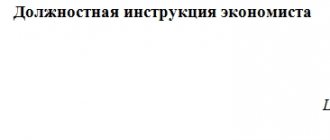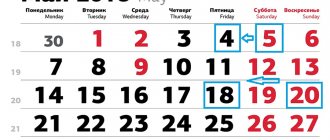Article 265. Work in which the employment of persons under the age of eighteen is prohibited
It is prohibited to employ persons under the age of eighteen in work with harmful and (or) dangerous working conditions, in underground work, as well as in work the performance of which may harm their health and moral development (gambling business, work in night cabarets and clubs , production, transportation and trade in alcoholic beverages, tobacco products, narcotic and other toxic drugs).
(as amended by Federal Law No. 90-FZ of June 30, 2006)
It is prohibited for workers under the age of eighteen to carry or move heavy loads that exceed the limits established for them.
The list of jobs in which the employment of workers under the age of eighteen is prohibited, as well as the maximum weight standards are approved in the manner established by the Government of the Russian Federation, taking into account the opinion of the Russian Tripartite Commission for the Regulation of Social and Labor Relations.
Terms of the employment contract
The work of minors under the Labor Code begins only after a written agreement is concluded with them. According to general standards, it must be concluded before the teenager starts work. Article 61 of the Labor Code of the Russian Federation also allows, in special cases, to first grant permission to work and sign a contract within three days, but in the case of teenagers it is better not to use this method.
The employment contract form itself is no different from the generally accepted one or the one developed at the enterprise for general purposes. But it is important that the clauses of the agreement indicate parameters specific to the teenager. Here we must take into account that this category of workers is subject to special working conditions.
When drawing up an agreement, the following nuances should be taken into account:
- Age of the employee. The fact is clarified whether he has the right to sign his own signature or must confirm his intention with written statements from parents and the board of trustees. Only upon reaching the age of 16 and completing the secondary educational level can a teenager independently choose his own workplace.
- Working hours. Those under the age of majority are employed full-time or part-time, depending on their educational needs.
- Lists of works that can be assigned to this category. Teenagers are not involved in hard, harmful or dangerous work, and most often they perform light work.
- Rest for workers under 18 years of age should be more extensive. For them, the total working week is reduced, and annual leave is increased.
- A teenager’s salary is also regulated by the Labor Code of the Russian Federation. The main thing is that this category is not discriminated against in terms of payment based on age.
If the agreement contains clauses that contradict legislative norms, then they will be considered illegal and violative of the rights of the teenager.
Work time
When concluding a contract with an employee who is under 18 years of age, you must not forget that his working hours will differ significantly from the generally established ones. Article 92 of the Labor Code of the Russian Federation establishes clear duration of labor for this category. The duration is always reduced, but the number of hours depends on two factors:
- Employee age.
- Is he studying or just working?
According to legal standards, teenagers must work:
- 35 hours per week if they are over 16 but not yet 18.
- Minors under 16 years of age can work 24 hours a week.
- Those who combine study and work will be allowed to work 17.5 and 12 hours, respectively.
Working hours are not only subject to such strict time limits.
Among other things, minors are not allowed to:
- Send on business trips, regardless of their distance and duration.
- Put on night shifts.
- Involve in extracurricular activities.
- Call to the workplace on weekends and holidays.
Teenagers cannot have overtime, paid or compensated by time off. When setting working hours for such workers, it is important to maintain a balance of work and rest so as not to harm either physical or psychological health.
Working conditions
Special working conditions for teenagers imply the impossibility of involving them in work that is classified as harmful and/or dangerous. Of particular note is the ban on those positions where children can cause themselves not only physical, but also moral harm.
Thus, it is prohibited to accept minors into the following areas:
- Gambling business.
- Establishments that sell alcoholic drinks on tap.
- Retail outlets that sell alcohol and cigarettes.
Employees under 18 years of age cannot be given tasks related to carrying heavy objects.
There are norms established by law, the limits of which cannot be exceeded. These norms vary depending on the gender of the employee. Girls are supposed to have lighter loads, and guys a little more. Up to 16 years of age, boys can lift and move loads weighing no more than 3 kilograms during the entire shift, and girls only 2. From 16 to 18, this norm increases by 1 kilogram for both groups.
Among other things, when signing an agreement with a teenager, you should take into account that they cannot be hired for part-time jobs. It is prohibited to establish probationary periods for this category of employees.
Production standards for each child worker are calculated individually. To establish them, a calculation is made that is proportional to the established reduced time. Reduced production standards may also be applied if there are special medical or age-related indicators for this.
Time relax
Child workers must have adequate rest both during the working day and throughout the year. The Labor Code of the Russian Federation establishes the obligation for all hired persons to:
- Technical breaks if required by the duties performed.
- Meal breaks.
- Breaks between shifts.
- Weekend.
- Annual leave.
Every year, minors are entitled to at least 31 calendar days of paid rest. It can be taken in full or in parts according to the general rules for presenting vacation periods. Teenagers have the right to take their initial leave earlier than the first six months have been worked. It should be taken into account that this category of employees cannot be fully or partially compensated for vacation periods.
In addition to compulsory annual leave, the employer must, at the request of the employee, provide him with periods of average pay, which will be issued for passing entrance or intermediate exams.
The employer has no right:
- Postponement of children's holidays to next year.
- Recall teenagers from vacation early.
Rest according to general standards is planned in advance in the vacation schedule, but can be issued at other times at the request of the employee.
Salary
When determining an employee’s future salary, it is important to take into account that in no case can it be reduced based on age criteria.
Rates, salaries and tariffs are general and not special. But when specifying a specific amount in the employment agreement, it is necessary to take into account the working hours of a specific employee and calculate payments in proportion to this figure.
The employer has the right to make additional payments to the established salary or tariff. Additional payments can be expressed as a fixed amount paid monthly, or tied to production standards or the number of hours worked. All assigned additional payments will be made exclusively from the organization’s own funds.
The level of protection for this category of employees is such that it is quite difficult to dismiss them on the initiative of the employer himself. Especially in case of staff reduction or established violation of labor discipline. Upon dismissal, the employer will be obliged to involve specialists from the state labor inspectorate and the commission on minors' affairs in considering the issue. But the teenager himself can apply for dismissal at any time without indicating any compelling reasons.
Article 266. Medical examinations (examinations) of persons under the age of eighteen
(as amended by Federal Law No. 90-FZ of June 30, 2006)
Persons under the age of eighteen are hired only after a preliminary compulsory medical examination (examination) and subsequently, until they reach the age of eighteen, are subject to a mandatory medical examination (examination) annually.
(as amended by Federal Law No. 90-FZ of June 30, 2006)
The mandatory medical examinations (examinations) provided for in this article are carried out at the expense of the employer.
(as amended by Federal Law No. 90-FZ of June 30, 2006)
Remuneration for minors
How are minors paid?
An enterprise may have different wage regimes:
- Time-based (for each hour or shift).
- Piecework (for results) at established prices.
Both regimes are acceptable in relation to minor employees. In the first case, income will be calculated in proportion to the duration of the work shift and the number of shifts per week.
Despite the fact that the standard hours for children and adolescents are established by law, they are still considered reduced in relation to the standard (8 hours a day and 40 a week). Therefore, even if their standards are met, the salary of a minor employee may not reach the minimum wage.
The employer has the right, at the expense of his own profits, to make allowances or pay bonuses up to the minimum wage or higher.
Article 270. Production standards for workers under eighteen years of age
For workers under the age of eighteen, production standards are established based on general production standards in proportion to the reduced working hours established for these employees.
For workers under the age of eighteen who enter work after graduating from general education institutions and educational institutions of primary vocational education, as well as having undergone vocational training on the job, in accordance with labor legislation and other regulatory legal acts containing labor law standards, collective agreements, agreements , local regulations, or an employment contract may establish reduced production standards.
(as amended by Federal Law No. 90-FZ of June 30, 2006)
Peculiarities of labor of minors
The nuances and features of the labor of minors are regulated by the Labor Code of the Russian Federation in a special chapter (Chapter 42, Art. 265–272). Separate provisions are contained in other articles of the Code, in particular Art. 63, which talks about the age allowed for hiring employees.
The state especially protects minor workers, which is confirmed by Art. 5 Federal Law No. 1032-1 dated April 19, 1991. They have additional guarantees and privileges, in particular:
- right to quotas. In Moscow, for example, every enterprise and company with a staff of more than 100 people is required to allocate 2% of jobs to people under 18 years of age. Failure to comply with this condition may result in administrative liability and a fine of 30–50 thousand rubles;
- free training in qualification programs at Employment Centers;
- additional vacancies that are organized by the State Employment Service and local administrations during the holiday season. For the most part, this is work related to the improvement of cities, planting and caring for green spaces, and harvesting;
- reduced hours, increased vacation time compared to adult workers, etc.
The organization of labor relations with children and adolescents is also regulated by acts of the Ministry of Health and Social Development, the Ministry of Labor, letters and recommendations of the State Labor Inspectorate (GIT), Resolution of the Armed Forces of the Russian Federation No. 1 of January 28, 2014.











